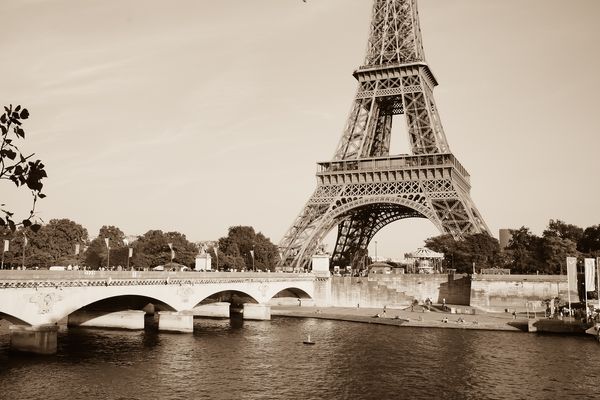The Many Uses for the French Present Tense

Written by guest contributor Noémie Serrano, an editor at Lingolistic
The French present tense is one of the most important tenses in French grammar, since it can be used in several ways and for many purposes, including past or future events. So if you want to master French, you will have to understand the different uses of the present tense. Luckily, there are similarities between French and English uses of the present tense, which helps the learning process. Let's tackle them together!
Présent d'énonciation/présent continu
The présent d'énonciation is the French equivalent of the English present progressive. It indicates an ongoing action.
For example:
Je regarde la télé. - I am watching TV.
Paul fait la vaisselle. - Paul is washing the dishes.
If you want to emphasize more on the "right now" of the situation, use the présent continu (the present continuous), which is also similar to the present progressive. The présent continu is constructed as follows: être en train de (to be in the process of) + infinitive.
For example:
Je suis en train de cuisiner. - I am (in the process of) cooking.
Les enfants sont en train de jouer dehors. - The kids are (in the process of) playing outside.
Présent de narration
The présent de narration is generally used in books or when telling a story. We use it to relate something that happened in the past, using the present to make the story more lively.
For example:
J'étais dans la salle de bain et soudain, j'entends un bruit étrange, j'avais tellement peur que je n'ai pas bougé. - I was in the bathroom and suddenly, I hear a strange noise, I was so scared I did not move. (literal)
This is often referred to in English as the historical present, but mixing up present and past tenses is much less common in English than in French.
(If are wondering why the "e" of the pronoun "je" is missing in some cases, take a look at French contractions and learn how to use them.)
Présent de vérité générale
This form of the French present tense is used to state a universal truth.
For example:
Les chats sont des félins. - Cats are felines.
Le ciel est bleu. - The sky is blue.
These are facts that were true before, are true now, and will still be true in the future.
Présent d'habitude
The présent d'habitude serves to relate something that people do habitually. Verbs in the présent d'habitude are considered as repeated or usual actions and often used with an adverbial phrase of time.
For example:
Jérôme va à l'école tous les jours. - Jerome goes to school every day.
Je vois mes grand-parents le dimanche. - I see my grandparents on Sundays.
Présent duratif
The présent duratif is used to talk about unfinished actions, similar to the English present perfect tense. These actions started in the past and are still going on when the speaker is talking, which enables him or her to use the present tense.
For example:
Il pleut depuis 3 jours! - It has been raining for three days!
Claire est là depuis hier. - Claire has been here since yesterday.
Présent de condition ou de probabilité
If you want to state a probability or a condition, you will choose this form of the French present, and use the future tense in the second part of the sentence.
For example:
Probability:
Si je pars maintenant, j'arriverai à l'aube. - If I leave right now, I'll arrive when the sun rises.
Condition:
Si tu n'es pas sage, tu n'auras pas de dessert! - If you don't behave well, you won't get any dessert!
In a more informal environment, it is also common to hear people make a probability or state a condition using present in both the first and the second part of the sentence.
For example:
Probability:
Si tu veux aller au cinéma, je peux y aller avec toi. - If you want to go to the movies, I can go with you.
Condition:
Si tu fais la vaisselle, je te laisse regarder la télé! - If you do the dishes, I will let you watch TV!
Présent à valeur de passé/futur proche
The passé proche (near past) is used to relate an action that happened a few moments ago, to make it seem like it happened just now.
For example:
Vous vous ratez de peu, elle part à l'instant! - You just missed each other, she just left! ( "just miss," and "just leaves," literally)
The futur proche (near future) is used to relate an action that is not accomplished yet but will be in the near future.
For example:
Demain nous allons à la piscine. - Tomorrow we're going to the swimming pool.
undefined
Not too bad, right? Now try to use the present tense in at least two or three of these different situations every day, and you will soon be a master at using the French present tense!
undefined
undefined
About the author:
Noémie comes from a little town in Normandy, France. She studied at the University of Rouen, where she received a Master's degree in Foreign Languages applied to International Business. She is now living in Seville, Spain and works as an editor at Lingolistic. Passionate about language learning, she is currently studying Portuguese.

2016年2月5日



